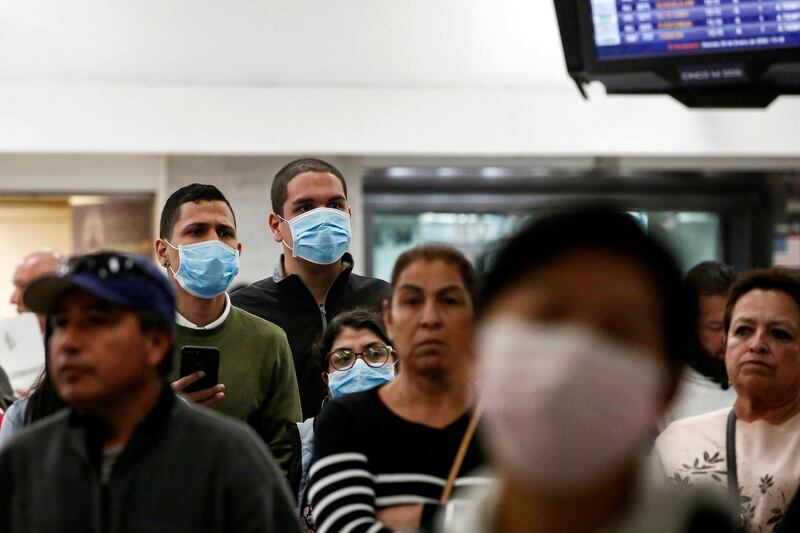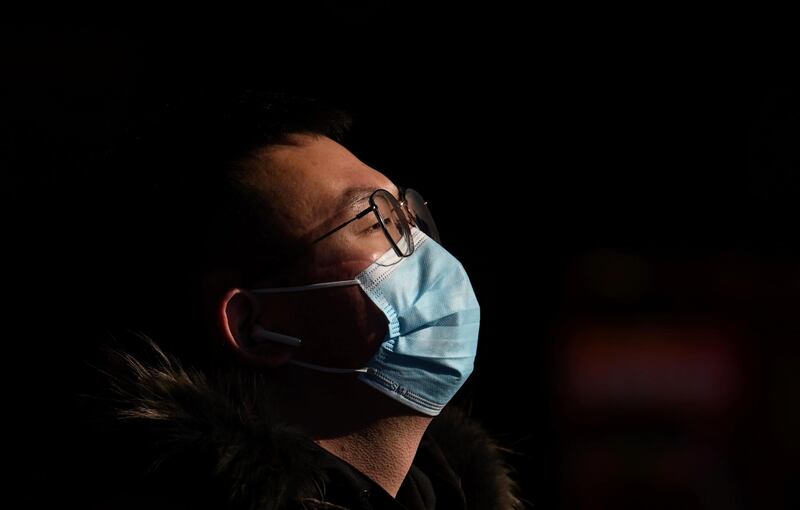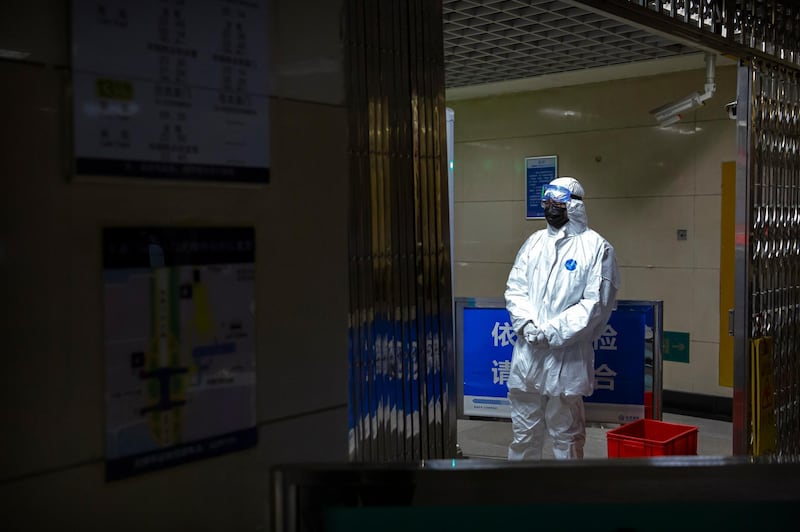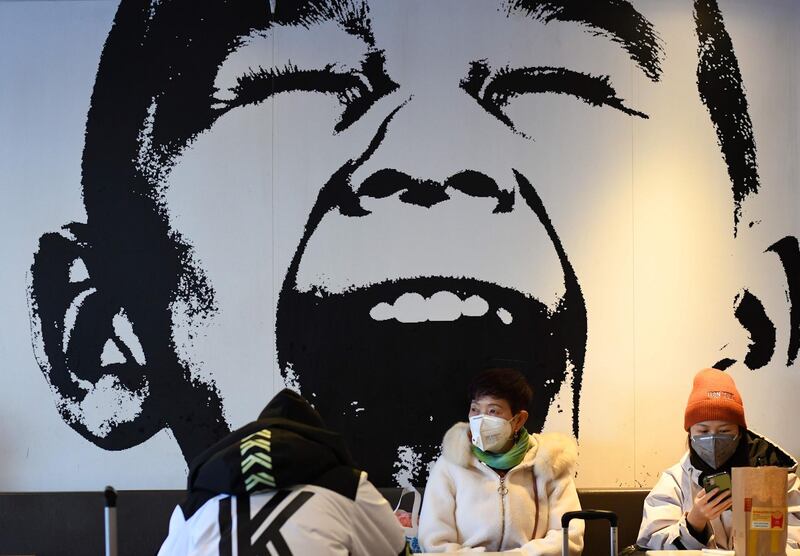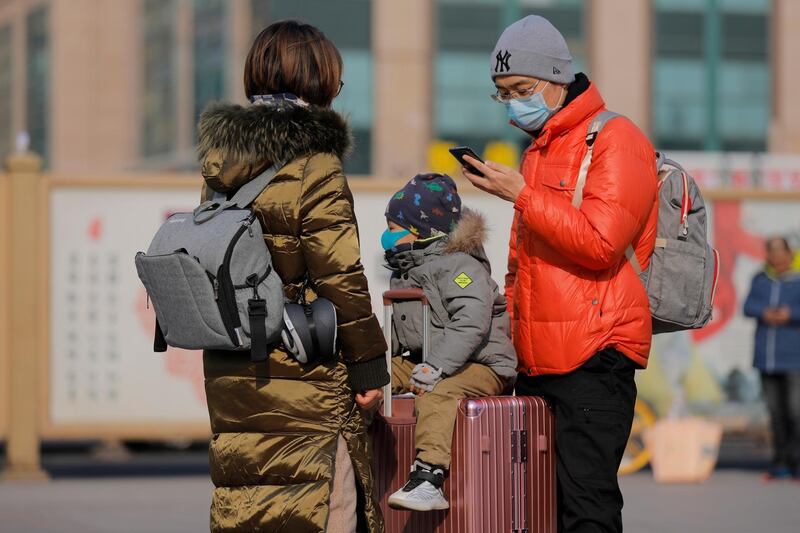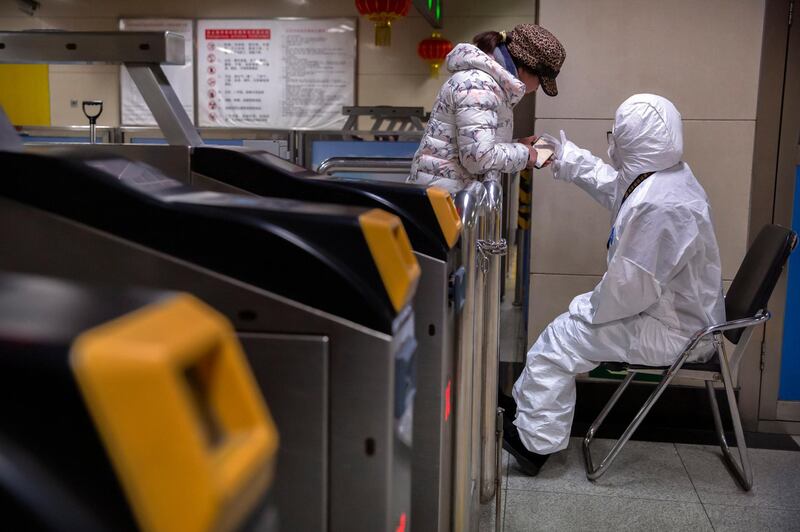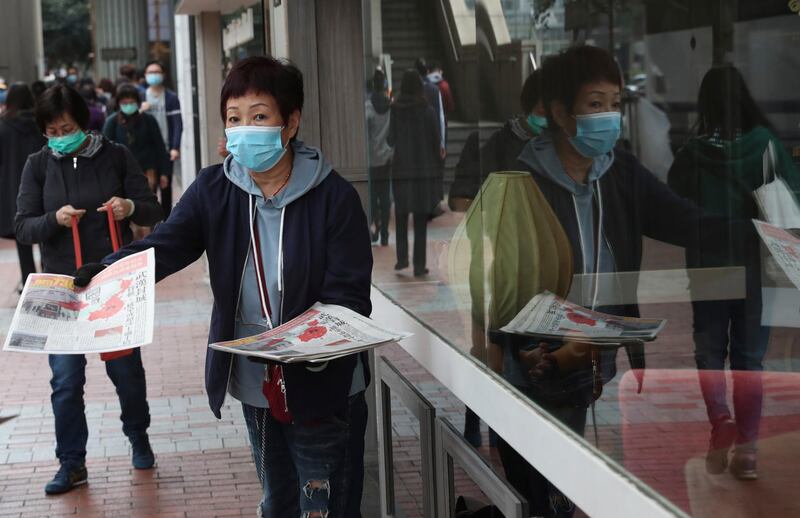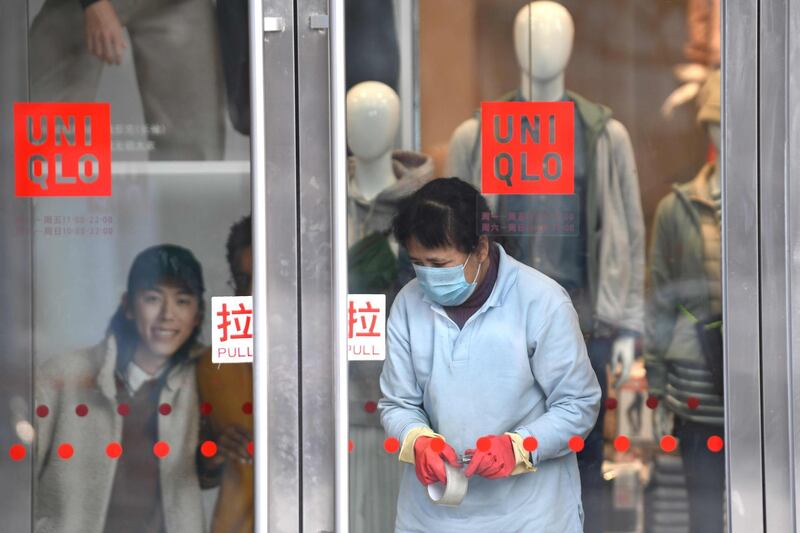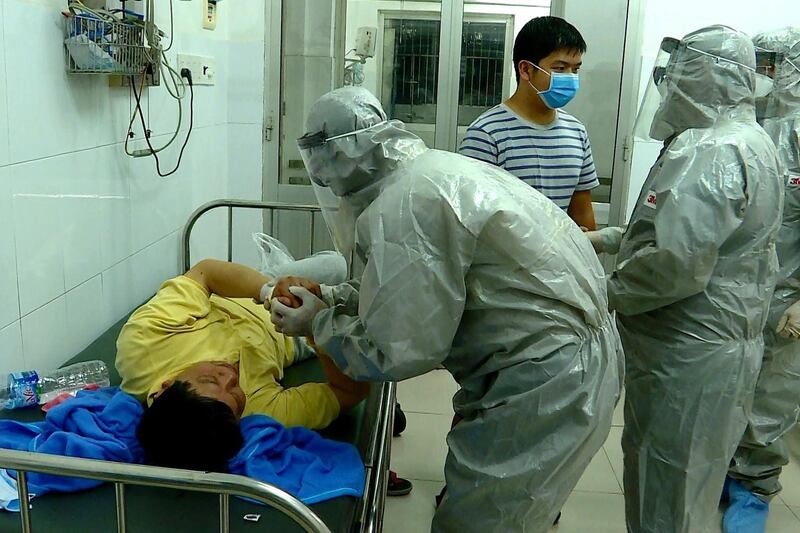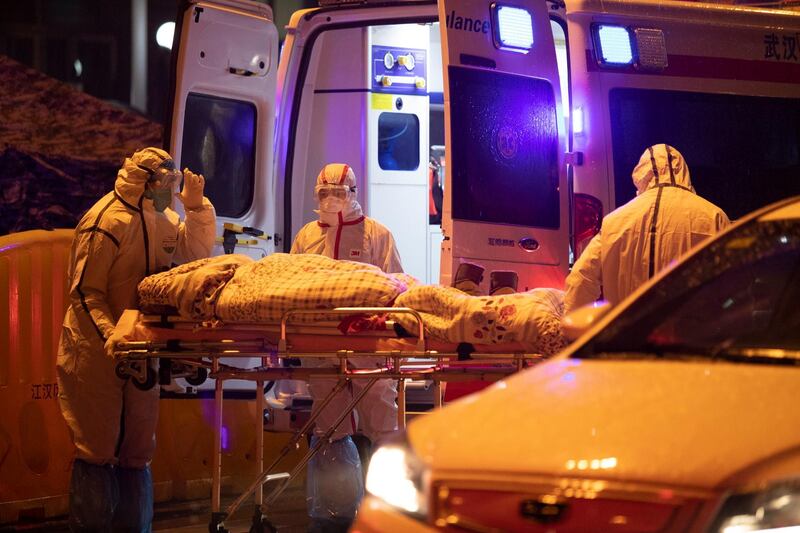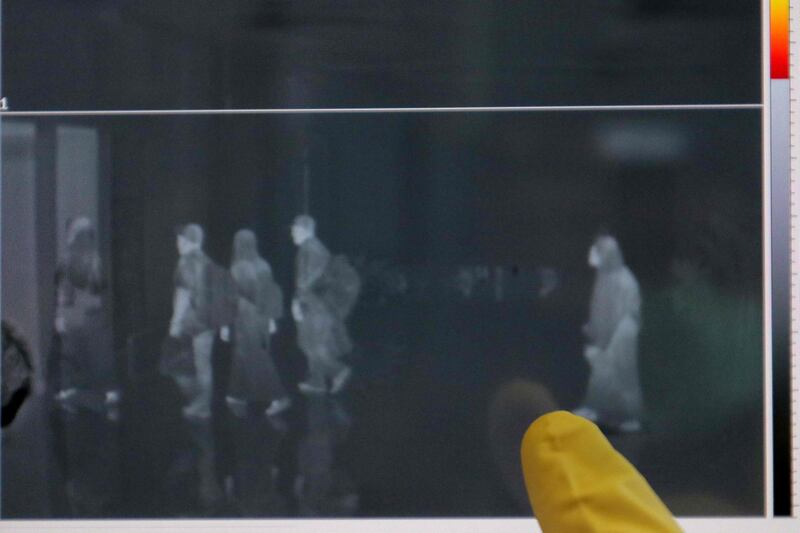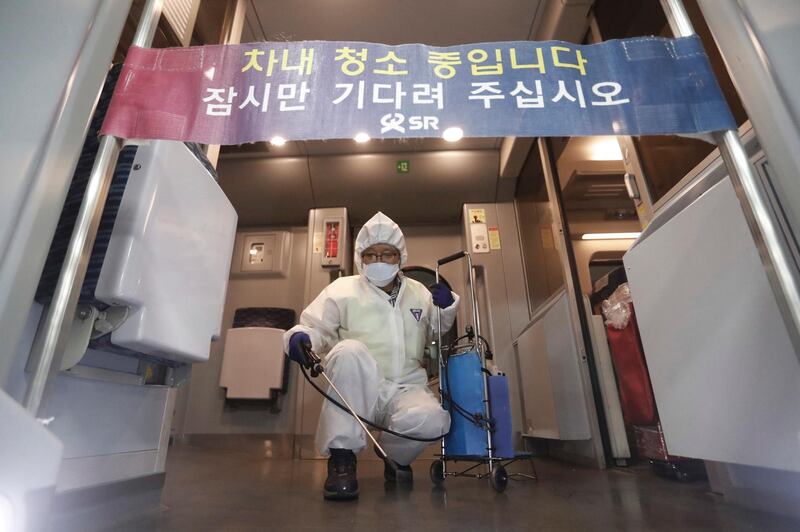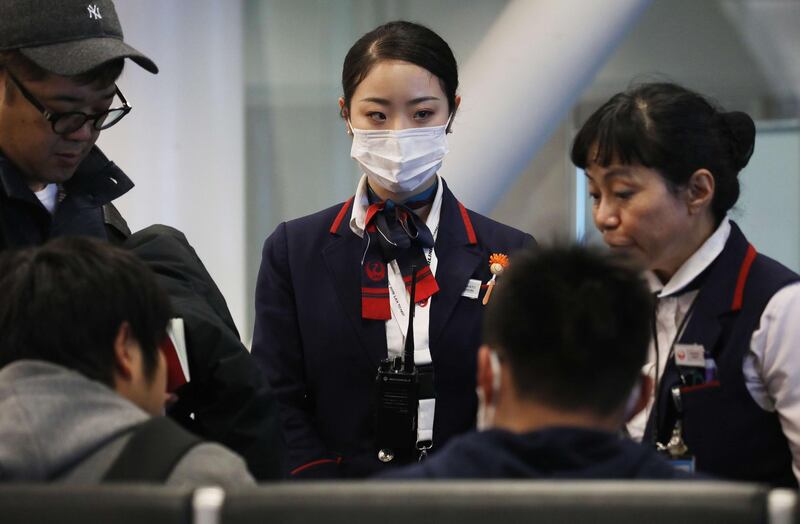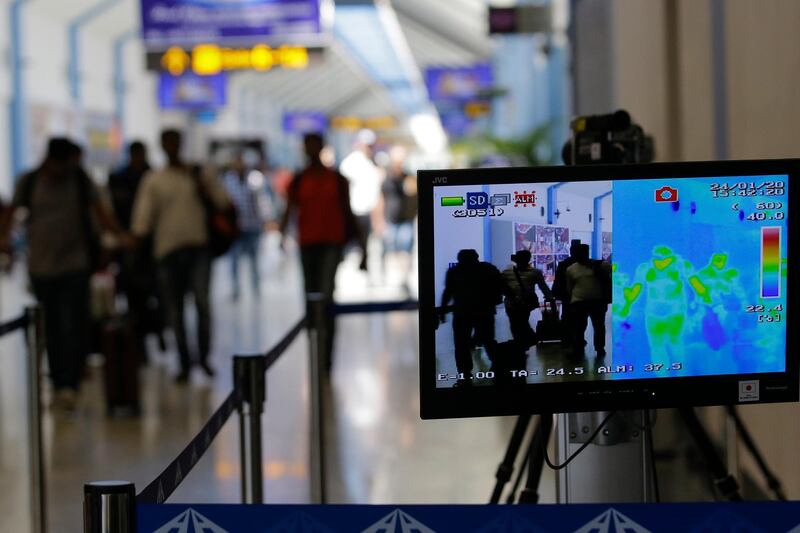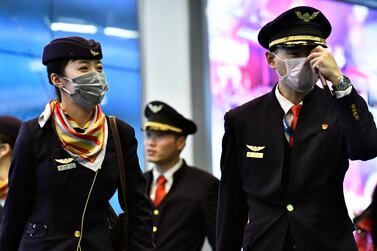All passengers on Etihad flights arriving into Abu Dhabi from China will be screened for coronavirus to limit the potential of a global outbreak of the fast-spreading mystery bug.
Passengers already booked on flights to and from China are also eligible for a refund from the airline without charge.
Emergency talks between health officials and Etihad Airways resulted in a series of measures drawn-up to protect the UAE from any viral outbreak.
No cases have so far been reported in the UAE. Dubai and Abu Dhabi airports are screening passengers from China.
“In response to the outbreak of the new coronavirus in China, Etihad Airways is working with key stakeholders in Abu Dhabi to help prevent the spread of the virus into the UAE,” an Etihad spokesperson said.
“Etihad Airways is also waiving rebooking and refund charges for tickets issued on or before January 24, 2020 for travel to or from mainland China.”
Thermal camera screening procedures are to be introduced for passengers and crew on all Etihad flights arriving from China.
Dedicated gates will be assigned at Abu Dhabi International Airport for flights arriving from China, while freight aircraft from the country will use specific parking bays with crews screened under similar protocols.
Passengers already booked on flights can make changes or cancel their trip by calling the Etihad contact centre in the UAE on +971 600 555 666 or in China on (+86) 400882 2050, or via their travel agent.
The killer bug, named 2019-nCoV by scientists, is thought to have originated from snake meat illegally bought from an animal market in the industrial hub of Wuhan in China.
It has since spread to several major cities in the country including Shanghai, Beijing and elsewhere.
At least 26 people have so far died, with experts fearing a possible global pandemic as the virus bears similar hallmarks to Sars, the flu-like illness that swept through Asia in 2003 killing more than 700 people.
Chinese health authorities have reported more than 1287 confirmed cases of 2019-nCoV with other carriers of the strain detected in Thailand, Vietnam, Singapore, Japan, South Korea, Taiwan, Nepal, the United States and France.
Virologists studying the outbreak said almost all patients showed signs of a fever, whereas half had a shortness of breath and fatigue.
Of those diagnosed, three quarters had a cough but all of them had pneumonia, the main cause of death in three per cent of all recorded cases so far in China.
One glimmer of hope offered by researchers is this latest coronavirus mutation shows slightly different symptoms to Sars that may limit its spread.
Although the new mutation can pass between humans and from city to city, scientists studying the virus in China have found it does not cause a runny nose, sneezing or diarrhoea.
Crucially, a study published in The Lancet medical journal noted an absence of upper respiratory tract infections in sufferers with early signs of 2019-nCoV, with sneezing and runny nose a major factor in spreading viruses between humans.
“Many characteristics of this novel coronavirus and how it may affect people are still unclear,” said Dr Sundar Elayaperumal, a microbiologist at Burjeel Hospital.
“This novel coronavirus has the potential to cause severe disease and death.
“Preliminary information suggests this is especially true among the elderly and those people with underlying health problems or compromised immune systems.”
